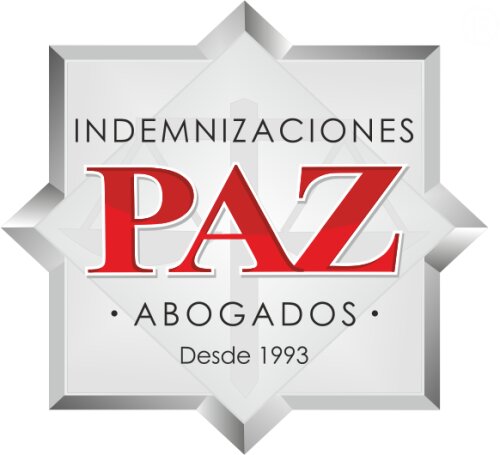Best Nonprofit & Charitable Organizations Lawyers in Pasto
Share your needs with us, get contacted by law firms.
Free. Takes 2 min.
List of the best lawyers in Pasto, Colombia
About Nonprofit & Charitable Organizations Law in Pasto, Colombia
Nonprofit and charitable organizations play a significant role in Pasto, Colombia, supporting social, cultural, educational, and humanitarian initiatives. These organizations are typically established for purposes other than generating profit and are governed by specific national and local laws. In Pasto, nonprofit entities are commonly registered as associations, foundations, or corporations with a social interest. Colombian law encourages the development of these organizations to address public needs and promote the common good, but also requires them to comply with specific legal, financial, and administrative obligations.
Why You May Need a Lawyer
Seeking legal counsel is often essential in the realm of nonprofit and charitable organizations. Some common situations where legal help may be required include:
- Registering a new nonprofit or charitable entity
- Drafting and reviewing the organization's governing documents or bylaws
- Ensuring compliance with local and national regulations
- Obtaining and maintaining tax-exempt status
- Advising on employment and volunteer agreements
- Navigating disputes between board members or with government agencies
- Managing donations, grants, and financial accountability
- Adhering to anti-money laundering and transparency rules
- Responding to audits or legal challenges
- Merging with or dissolving another organization
A qualified lawyer in Pasto can help organizations avoid legal complications, maximize their impact, and achieve compliance with all relevant laws.
Local Laws Overview
Nonprofit organizations in Pasto operate under both national Colombian law and specific local regulations. The key legal framework includes:
- Colombian Civil Code and Commercial Code: These statutes define legal entities, processes for formation, and obligations for associations and foundations.
- Decree 2150 of 1995: Establishes simplification measures for forming nonprofit entities.
- Tax Laws: Nonprofits may qualify for tax benefits if they meet certain requirements, as established by Colombian tax authorities (DIAN).
- Superintendence of Family Welfare (ICBF) and the Chamber of Commerce: Responsible for registration, public oversight, and legal monitoring of nonprofit entities in Pasto.
- Local Municipal Requirements: Pasto's city government may impose additional registration, reporting, and operational requirements.
- Transparency and Accountability Laws: Organizations must follow public benefit guidelines, submit financial reports, and comply with anti-money laundering standards.
Understanding these rules is vital to maintaining good standing and ensuring your organization's activities remain legal and effective.
Frequently Asked Questions
What types of nonprofit entities can I form in Pasto, Colombia?
You can establish associations, foundations, and certain types of corporations for social interest. The most common are civil associations and foundations, each with specific formation and governance requirements.
How do I register a nonprofit in Pasto?
Registration is usually completed with the local Chamber of Commerce or the Superintendence of Family Welfare, depending on your organization's focus. You will need to provide founding documents, bylaws, and information about your board members.
Can my nonprofit receive tax benefits?
Yes, if your organization meets specified criteria and is authorized by the tax agency (DIAN), it may qualify for income tax exemptions and other benefits. Compliance with all reporting requirements is essential.
What are the ongoing legal obligations for nonprofits in Pasto?
You must update your registration annually, submit financial and activity reports, comply with local and national regulations, and maintain transparency in operations.
Are donations to my nonprofit tax deductible for the donor?
Donors may receive tax benefits if your organization is approved by DIAN as eligible to receive tax-deductible donations. Ensure you maintain valid certification and proper donation records.
Do I need a lawyer to set up a nonprofit?
While not mandatory, legal assistance is highly recommended to avoid errors that could cause delays, legal issues, or inability to obtain certain benefits.
What are the responsibilities of the directors or board members?
Directors are responsible for managing the organization according to its bylaws, Colombian law, and principles of good governance. They are liable for ensuring compliance and can face penalties for misconduct.
Can a nonprofit engage in commercial activities?
Nonprofits may carry out commercial activities only if they are directly related to their mission and profits are used solely to further organizational goals, not for personal gain.
How do I handle disputes within my nonprofit?
Disputes are typically resolved based on provisions in your organization’s bylaws. If necessary, mediation or legal action in court may be pursued, for which a lawyer’s guidance is advised.
What happens if a nonprofit fails to comply with regulations?
Noncompliance can lead to fines, loss of tax benefits, suspension of operations, or dissolution of the organization, depending on the severity of the infraction.
Additional Resources
Several resources are available for individuals and organizations in Pasto seeking assistance with nonprofit legal matters:
- Chamber of Commerce of Pasto - For registration and business guidance
- Superintendence of Family Welfare (ICBF) - Oversight agency for social organizations
- DIAN (Dirección de Impuestos y Aduanas Nacionales) - For tax regime and benefits
- Municipality of Pasto - Local legal and administrative requirements
- Universities and legal clinics - Offer free or low-cost legal aid to nonprofit organizations
- Colombian Confederation of NGOs - Advocacy and support for civil organizations
Next Steps
If you are thinking of creating or managing a nonprofit or charitable organization in Pasto, begin by outlining your goals and reviewing the basic legal requirements for your chosen entity type. Consult the Chamber of Commerce and visit the appropriate agencies to gather necessary information and forms.
Given the complexity of nonprofit law and the importance of compliance, contact a qualified lawyer in Pasto with expertise in nonprofit and charity law. A lawyer can help you with incorporation, compliance, tax matters, dispute resolution, and all required documentation. Consider scheduling an initial consultation to address your questions and ensure your organization is on the right path from the beginning.
Stay informed by attending local workshops, networking with other organizations, and keeping up to date on regulatory changes that might affect your operations.
Lawzana helps you find the best lawyers and law firms in Pasto through a curated and pre-screened list of qualified legal professionals. Our platform offers rankings and detailed profiles of attorneys and law firms, allowing you to compare based on practice areas, including Nonprofit & Charitable Organizations, experience, and client feedback.
Each profile includes a description of the firm's areas of practice, client reviews, team members and partners, year of establishment, spoken languages, office locations, contact information, social media presence, and any published articles or resources. Most firms on our platform speak English and are experienced in both local and international legal matters.
Get a quote from top-rated law firms in Pasto, Colombia — quickly, securely, and without unnecessary hassle.
Disclaimer:
The information provided on this page is for general informational purposes only and does not constitute legal advice. While we strive to ensure the accuracy and relevance of the content, legal information may change over time, and interpretations of the law can vary. You should always consult with a qualified legal professional for advice specific to your situation.
We disclaim all liability for actions taken or not taken based on the content of this page. If you believe any information is incorrect or outdated, please contact us, and we will review and update it where appropriate.









